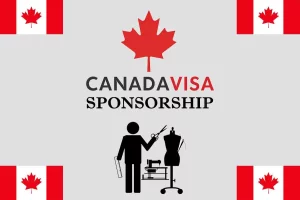You can sponsor your spouse, common- law partner, conjugal partner, dependent children, parent or grandparent.
Your spouse
Your spouse can be either sex and must be:
- lawfully wedded to you
- at least 18 years old
Your common-law partner
Your common-law partner:
- isn’t legally wedded to you
- can be either sex
- is at least 18 years old
- has been living with you for at least 12 consecutive months, meaning you’ve been living together continuously for 1 year in a conjugal relationship, without any long periods apart
- Any time spent away from each other should have been
-
- short
- temporary
-
If you or your common-law partner choose to end the relationship, we consider the relationship to be over.
You’ll need to give proof of your common-law relationship.
Your conjugal partner
Your conjugal partner:
- isn’t legally married to you or in a common-law relationship with you
- can be either sex
- is at least 18 years old
- has been in a relationship with you for at least 1 year
- lives outside Canada
- can’t live with you in their country of residence or marry you because of major legal and immigration reasons such as
- their marital status (for example, they’re still married to someone else in a country where divorce isn’t allowed)
- their sexual alignment (for example, you are in a same-sex relationship, and same-sex relationships are not recognized, or same-sex marriage is illegal where they live),
- discrimination (for example, your relationship is between different religious groups which is not accepted and they may be punished legally or socially)
You’ll need to give proof that you could not live together or get married in your conjugal partner’s country (for example, proof of refused long-term stays in each other’s country).
Dependent children
Children qualify as dependents if they meet both of these requirements:
- they’re under 22 years old
- they don’t have a spouse or common law partner
Children 22 years old or older qualify as dependents if they meet both of these requirements:
- they are unable to financially support themselves because of a mental or physical condition
- they have depended on their parents for financial support since before the age of 22
With the exception of age, your dependent child must continue to meet these requirements until we finish processing your application.
If they qualify as a dependent child, you can sponsor
- your own child
- If you’re a Canadian citizen, your child may also be a Canadian citizen, even if they weren’t born in Canada. You can’t sponsor your child for permanent residence if they’re Canadian citizens already.
- If you’re sponsoring just your child, without sponsoring your spouse or partner, you’ll name your child as the principal applicant in the application. You’ll have to show that the other parent or legal guardian agrees to your child immigrating to Canada.
- If the child you want to sponsor has a child of their own (your grandchild), you’ll include your grandchild as a dependent in the application.
- If you want to sponsor your adopted child, follow the instructions to sponsor your adopted child. There are two processes that you must go through when you adopt a child from another country: the adoption process and the immigration process.
The immigration process has two parts:
- the application for sponsorship; and
- The application for permanent residence for the child.
After your child arrives in Canada as a permanent resident, you can apply for citizenship on the child’s behalf. However, the adoption must be finalized before the child can be granted citizenship.
- your spouse or partner and their child
- If you’re sponsoring your spouse or partner and a child (either their own child or a child you’ve had together), you’ll name your spouse or partner as the principal applicant and the child as the dependent in the application.
- If the child you want to sponsor has a child of their own, you’ll include the grandchild as a dependent in the application.
Eligibility of the people you’re sponsoring
To show they meet the eligibility requirements, your spouse, partner, dependent child and their dependent children (if applicable) must provide:
- all required forms and documents with their application
- any additional information we request during processing, including
- medical exams
- biometrics
- police certificates
You can’t sponsor someone who is prohibited to Canada.
- Your Parents and grandparents
You can sponsor your own parents and grandparents, related by blood or adoption.
In case of divorce, you’ll need to submit separate applications if you sponsor divorced parents and grandparents. If your divorced parents or grandparents have a current spouse, common-law partner or a conjugal partner, these people become dependents on the application and can immigrate to Canada with your parents and grandparents, if approved.
In the application, you can include your brothers and sisters, half-brothers and half-sisters, or step-brothers and step-sisters only if they qualify as dependent children as explained earlier.
You must meet the income requirements for all the people you want to sponsor and their dependents (spouse, partner and dependent children).
Check out our Next Blog post to see your eligibility and required document to sponsor your loved one on the link below.


